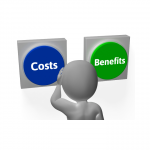5 Addiction Myths Debunked
When it comes to substance addiction, it seems everyone has an opinion. While some people clearly mean well, there are quite a few myths out there spread around by those who simply don’t get it. In an effort to separate fact from fiction, here are a few of the most common addiction myths—and why they’re incorrect:
- Addiction is about a lack of willpower
You’ve heard this one. Many claim addiction is about “not having enough willpower” or “giving in”. However, addiction is not a choice. Conversely, in fact, addiction is a disease of the brain, and one that affects millions of people the world over. If you’re battling an addiction, it’s not because you’re demonstrating some moral failing. It’s because you need treatment.
- Rehab doesn’t work
First of all, rehab isn’t some magical place you go that suddenly makes you stop wanting to use drugs. It’s a controlled environment where you’re given all the skills necessary to combat cravings. Rehab creates a safe space for the addict where he or she can see what life looks like without addiction. However, it is important to note that rehab does not “cure” addiction. Much like any chronic disease (think lupus or arthritis), chemical dependency is permanent and ongoing. No matter how long an addict stays sober, he or she can never use drugs or alcohol again. That’s why the correct terminology for an addict who no longer uses is “in recovery” rather than “recovered,” signifying that the process (and the fight for sobriety) is enduring.
- Medication during detox and recovery is just swapping one addiction for another
Pharmacotherapy—the use of pharmaceutical drugs to combat and offset addiction—is a common practice in many treatment centers nationwide. While it may seem counterintuitive to give an addict another drug, the drugs used in treatment are FDA-approved for specific uses like calming cravings or causing illegal drugs to give you horrible nausea as a physical incentive to avoid them altogether. These pharmaceutical drugs do not exist to give the individual a “high,” and are safe to use with the oversight of a trained physician. A doctor monitors the dosage of these drugs and even assists in helping wean off the medication when the time comes to do so.
- If an addict tries hard and is serious about his/her sobriety, he/she will recover more quickly
As previously discussed, addiction is ongoing, and no one is ever cured from it. As a byproduct of the difficult reality of this disease, there can be no shortcuts to getting clean. Research shows that those who attend a treatment facility for 60 to 90 days and then engage in extensive aftercare like meetings and one-on-ones with physicians who specialize in addiction treatment (with treatment lasting for at least a year overall) are twice as likely to remain sober as those who seek treatment for shorter time periods.
- If you relapse, you’ve failed, and now you have to start all over again
Unfortunately, relapse is a typical part of recovery. It is not defeat—it’s part of the process. Successful treatment for addiction often requires continuous evaluation. Lapses to using again do not signify failure. Instead, these slip-ups mean treatment should be reinstated or adjusted or that additional methods should be explored. Knowledge is power in the recovery process, and often times the only way to keep that information flowing freely is to continue working with a treatment team. Remaining involved in a treatment program arms the addicted individual with tools necessary to make positive changes that stick with them forever—no matter how many setbacks may occur.
In short, addiction is not about willpower or being a bad person. It’s a disease that can be controlled with proper care, guidance, and support. If you or a loved one are struggling with addiction, contact MedPlex for help today.








